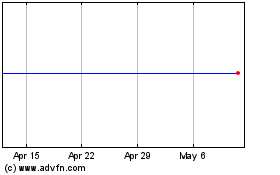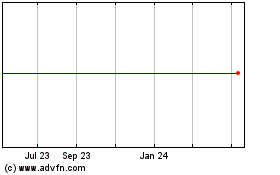BHP, Exxon Agree to Compete in Marketing Gas From Australian Venture
December 17 2017 - 8:14PM
Dow Jones News
By Robb M. Stewart
MELBOURNE, Australia--BHP Billiton Ltd. (BHP) and Exxon Mobil
Corp. (XOM) will compete for customers for natural gas from their
joint venture in southern Australia as part of a deal struck with
the country's antitrust regulator aimed at boosting
competition.
The pair have jointly marketed gas since their Gippsland Basin
venture started production in 1969, but in the wake of an
investigation by the Australian Competition and Consumer Commission
said they would each market their share of the fuel from January
2019.
The venture is the largest producer of natural gas in the
country's southeastern states. The marketing structure has faced
heightened criticism from buyers in recent years as the market has
tightened and prices have jumped with the ramp-up of exports from
large liquefied natural gas plants on the east coast, and as
utilities have turned to gas-fired power stations to counter
capacity lost with the closure of aging coal stations.
Concerned the joint ventures structure eliminated independent
rivalry between BHP and Exxon's local Esso unit, the regulator
began an investigation in 2015 into the affect of joint marketing
efforts on competition in the marketplace.
"Wholesale gas buyers in this region have become highly reliant
on the Gippsland Basin Joint Venture as their primary source of
supply," ACCC Chairman Rod Sims said.
Mr. Sims said the regulator's intervention should improve the
competitive landscape for gas buyers, which should receive improved
prices and contract terms.
Without any admission, BHP and Esso each agreed to provide the
ACCC with a court-enforceable undertaking requiring separate
marketing of their gas from the Gippsland Basin, the regulator
said. It added it would continue to monitor the market and
availability of contracts.
The venture would continue to meet existing contractual
obligations and work with customers to ensure a smooth transition
to new marketing arrangements, Exxon said. BHP said it believed it
had complied with the country's Competition and Consumer Act at all
times, and the voluntary decision on marketing would end
uncertainty for the companies and the market.
Natural gas prices offered to commercial and industrial users
have declined this week and three giant LNG plants on the coast of
Queensland state have delivered more fuel into the domestic market
under threat from Canberra that exports would be curbed if there
was a threat of a local supply shortage. Still, the ACCC last week
said recently agreed gas prices for 2018 have been at the upper end
or above what it considers would be likely in a well-functioning
and competitive market.
The regulator determined there was now a lower likelihood of a
supply shortfall next year across the east coast market, though
southern states were still expected to consumer more gas than the
region produced, requiring imports from Queensland. It said it also
found that some suppliers were finding it difficult to get access
to the key pipelines that send gas south, worsening a tight market
that already had been exacerbated by restrictions on energy
exploration in some states.
Write to Robb M. Stewart at robb.stewart@wsj.com
(END) Dow Jones Newswires
December 17, 2017 20:58 ET (01:58 GMT)
Copyright (c) 2017 Dow Jones & Company, Inc.
BHP (NYSE:BBL)
Historical Stock Chart
From Mar 2024 to Apr 2024

BHP (NYSE:BBL)
Historical Stock Chart
From Apr 2023 to Apr 2024
